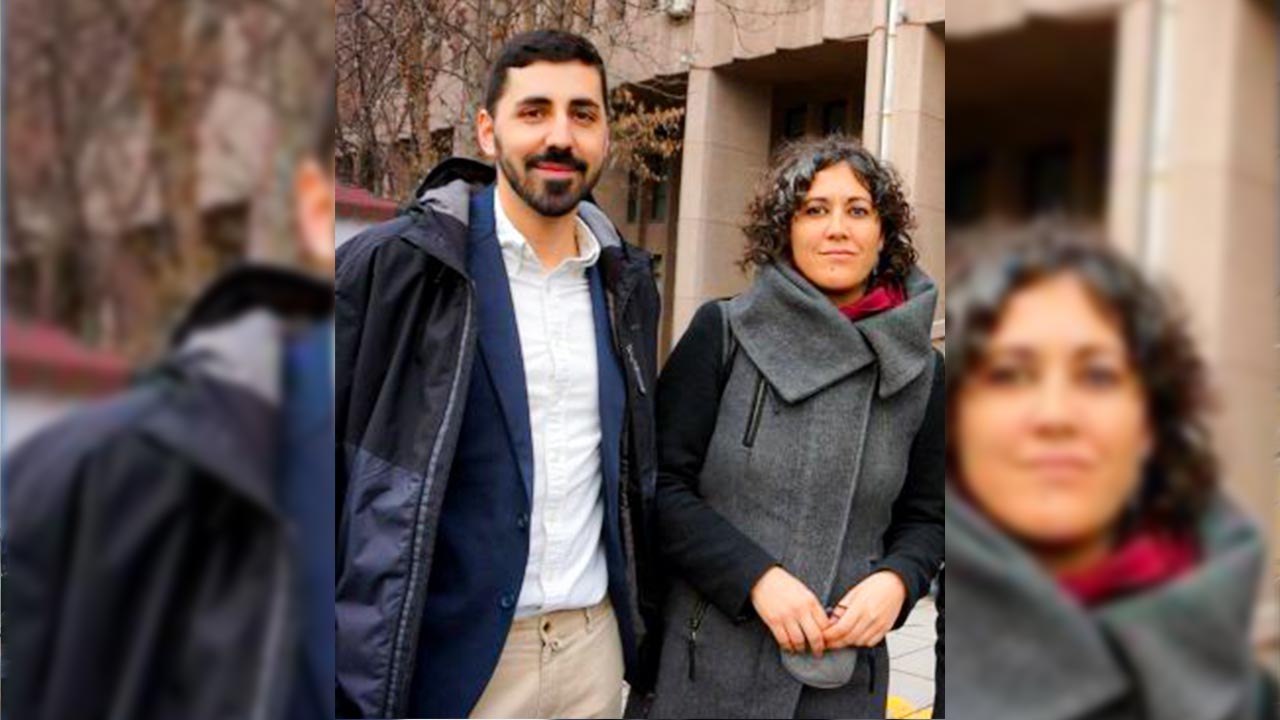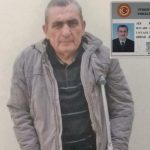Senior officials of the Head of the World Organisation Against Torture (OMCT) and Catalonia-based Centre for the Defence of Human Rights spoke to İrfan Aktan from Gerçek about cases of human rights violations in Turkey and on the silence of European Union (EU) members in the face of these violations.
Miguel Martín Zumalacárregui, head of the OMCT’s Brussels office, and Anais Franquesa, chair of the Centre for the Defence of Human Rights, were in Turkey to attend the court session of the trial of Öztürk Türkdoğan, the co-chair of the Turkish Human Rights Association (İHD), on 22 February. Türkdoğan is facing court over an indictment of being member of an ‘armed terrorist group.’
The indictment alleges that he committed a criminal offence by making an announcement on 15 February 2021 concerning a Turkish military operation in Garê, Iraqi Kurdistan, in which he said that the Turkish general Staff shared responsibility with the Kurdistan Workers’ Party (PKK) for the fatal consequences of a risky military operation that resulted in the death of 13 civilians.
Miguel M. Zumalacárregui said that “the reason Türkdoğan was accused of being a member of a terrorist group is that he is a human rights defender, and he didn’t go along with the official view.”
‘A grave human rights crisis going on in Turkey’
İrfan Aktan asked the two human rights defenders for their assessment on the recent situation regarding human rights violations in Turkey.
Zumalacárregui said:
“Turkey is currently going through a grave human rights crisis, and practices of torture are an important part of this. We work together with human rights groups and we are aware, thanks to the data they have provided, that serious practices of torture are at issue here. The political administration’s rhetoric about ‘zero tolerance against torture’ is baseless. Torture is still widely and systematically practiced in Turkey. We observe this in the penal system, in detention centres, and on the streets as citizens exercising their right to demonstrate are targeted. We are also aware that impunity for the perpetrators in cases of torture is another big problem.”
He added:
“NGOs have an essential role in monitoring detention centres and prisons, but in Turkey such organisations are not allowed to be involved in monitoring processes. Actually, this in itself tells much about the situation.”
Zumalacárregui stated that the political administration actually aimed to intimidate people and to deter them from claiming their rights.
“The Turkish government actually demonstrates the kind of relationship it has with its citizens, particularly with the opposition, through blatant violations of rights. The case against Türkdoğan is an example of this. The government tells its own citizens ‘this point is the limit of your action.’ It says: ‘Don’t exceed this limit, otherwise you will be facing similar trials.’”
‘Judicial harassment’
Anais Franquesa said:
“All governments use similar mechanisms of oppression in varying levels. One of these mechanisms is police violence against the people in the street. Another one is what we call judicial harassment. This means a continuous bombardment of human rights defenders with criminal investigations and court cases against them and the attempt to use this method to intimidate them (…) The objective of the government with this process is to leave as little leeway as possible to civil society.”
CPT forced not to disclose reports
Asked whether there are any reports that the European Committee for the Prevention of Torture (CPT) was forced by Turkey not to disclose, Zumalacárregui replied:
“Yes, Turkey is restricting the publication of the CPT’s reports. For instance, it has still not been possible for the two reports prepared after the military coup attempt in 2016 to be published, due to obstruction by the Turkish government. Some reports can only be published after significant delay, as a result of such obstructions. The Turkish authorities are trying hard to cover up what happened after the coup attempt, but the international community has information about that.”
He added that the EU’s silence in the face of rights violations in Turkey was disgraceful, and was partially related to the agreement with Turkey concerning refugees.
“Turkey’s refugee card has been very useful in buying Europe’s silence in the face of violations in Turkey. The refugee agreement between the European Union and Turkey is seen as a disgraceful document, not only by the European human rights movement, but by many political groups, because the EU has turned a blind eye to many cases of violations in Turkey, and has even become a part of these violations.”
Source:MedyaNews
***Show us some LOVE by sharing it!***



